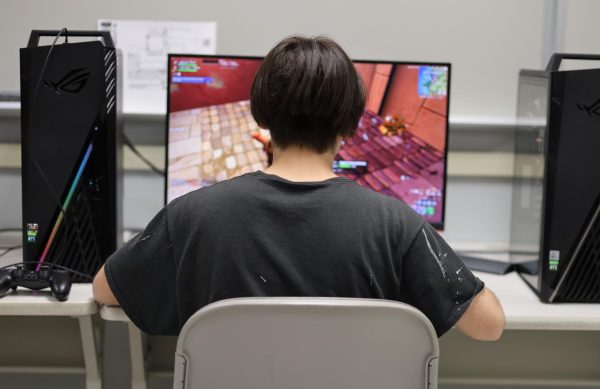ONLINE EXCLUSIVE: The Effects of Video Games
Simple digital entertainment may be changing the way people behave.
The first video game was released in 1958 and, since then, video games have evolved into a common facet of society. Games such as “Fortnite” and “Minecraft” have become household names, even for those who haven’t played. Many enjoy passing time by playing any of the thousands of games available for purchase and download. However, these addicting digital games may have a lasting impact on the young minds of the people who play them.
In addition to the variety of games available, there are also many different consoles that people can choose to play on, and some games are strictly limited to specific consoles. Some common ones include Xbox, PlayStation and Wii. Each of these consoles include games specifically engineered for them as well as sharing some commonalities with each other.
Some feel that because their children are viewing and taking in the often violent material thst it affects their behavior and alters their beliefs of what is right and what is wrong. In July of 2016, the American Academy of Pediatrics released a study that stated violent media sets a bad example for children, as many games involve people killing other people. They also stated that games should not use living targets for points, as it teaches children to associate pleasure and success with the killing of others.
They also showed through their studies that there is a significant link between exposure to violent video games and aggressive behavior, aggressive thoughts and aggressive feelings. Easy accessibility to guns and other violent weapons in video games poses a potential threat to influence young minds towards violent tendencies. Sophomore Joshua Garfinkle plays video games fairly often and feels that content can shape children’s views.
“[Video games] are a bad influence,” Garfinkle said. “When kids play shooting games, they’re more likely to be violent.”
However, many feel that what they play has no real effect on their behavior and instead is just something to entertain them, something to be taken at nothing more than face value. While Garfinkle feels that it may alter behavior, he also feels that outside factors have a stronger impact on somebody compared to digital content.
“You’re with your family and friends more,” Garfinkle said. “You spend more time with them and they mean more to you than some video game does.”
While it is often assumed that people spend hours playing video games everyday, this is not entirely true because not everyone chooses to play. Due to this, people often think that if their children are exposed to intense violence, it could cause them to become more aggressive. One study from the Netherlands, which has the highest per-capita game usage, surveyed nearly 200 children at the age of nine and revisited them again in a year to see the results. The study showed that their exposure to video games and any related problems, including aggressiveness, did not carry a strong bond.
Overall, many still disagree over what truly happens to the minds of children as they play games where blood and gore often flash in front of them. For many, it is simply mindless fun to give them the ability to focus on something else. As studies continue to grow, the full extent the video games have on many will come to light. Until then, many will continue to play what they enjoy, while others worry about the lasting impact.












